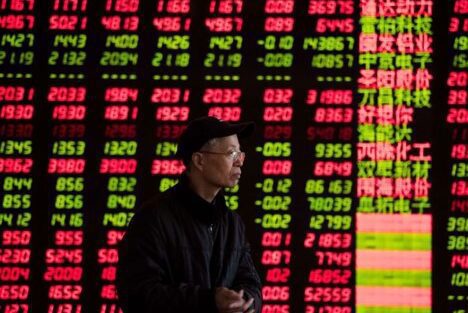An uneasy calm settled over currencies and bonds as investors awaited the outcome of the U.S. presidential election, with polls indicating a tight race. Meanwhile, expectations of increased government spending in China helped lift Chinese stocks.
The MSCI Asia-Pacific index, excluding Japan, edged up by 0.3%, while Japan’s Nikkei, returning from a holiday, climbed 1.4%. S&P 500 futures were flat, as were European and FTSE futures.
The dollar, having eased slightly as traders made final adjustments, stood at 152.46 yen and $1.0879 per euro.
“They’ve priced in what they think is possible, and that’s that,” noted Imre Speizer, a strategist at Westpac. He added that a clear victory for Republican Donald Trump would likely strengthen the dollar, while a win for Democrat Kamala Harris would likely see a modest dip in its value.
The election follows a bitter campaign, disrupted by assassination attempts on Trump and President Joe Biden’s withdrawal in favor of Harris. Polls suggest the candidates are nearly neck-and-neck.
Markets remain on edge, particularly over the potential impact of Trump’s protectionist trade policies, which could fuel inflation and harm exports from the world’s largest consumer market. Both the dollar and bonds are expected to react strongly to the election outcome.
“Ultimately, the U.S. election comes down to this—whether voters want to maintain economic policy continuity, institutional stability, and liberal democracy (Harris), or embrace radical trade policies, further retreat from globalization, and strongman leadership (Trump),” J.P. Morgan analysts wrote. “In short, it’s a choice between stability and change.”
China finds itself at the center of tariff risks, with its currency particularly sensitive, as implied volatility against the dollar hits near-record levels.
The yuan remained steady at 7.1065 per dollar, while Chinese stocks surged to near one-month highs. Investors are optimistic that a meeting of top policymakers in Beijing this week will approve local government debt refinancing and new spending measures.
“Everyone’s focused on the election outcome and staying cautious, but China and Hong Kong have factors beyond the election to consider,” said Steven Leung, an executive director at UOB Kay Hian in Hong Kong.
China’s CSI300 index rose 2.4%, and Hong Kong’s Hang Seng gained 1.4%.
The Australian dollar showed little reaction after the Reserve Bank kept interest rates unchanged, as expected, with attention firmly on the U.S. election. The Aussie was last slightly higher at $0.6601.
“Simply put, if Harris wins, we would look to sell dollar/yen and buy AUD/USD,” said currency strategists at Citi. “If Trump wins, we’d prefer buying USD against EUR, SEK, and NOK.”
Treasury markets, which have already priced in a U.S. interest rate cut for Thursday, held steady in Asia, with 10-year U.S. Treasury yields at 4.30%.
Bitcoin, often seen as a potential beneficiary of a more relaxed regulatory environment under Trump, retreated from recent highs and held steady at $67,924 on Tuesday.
Oil prices maintained strong gains after delays to producers’ plans for increased output, with benchmark Brent crude futures trading at $75.18 per barrel, following a 3% rise on Monday.
As the results begin to come in after midnight GMT, attention will be on the battleground states of Georgia, North Carolina, Pennsylvania, Michigan, Arizona, Wisconsin, and Nevada. A winner may not be determined for several days, and Trump has indicated that he will challenge any potential loss, similar to his actions in 2020.





